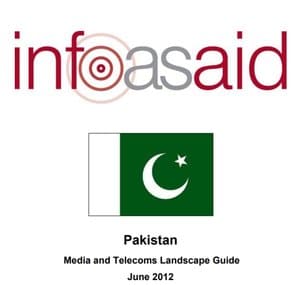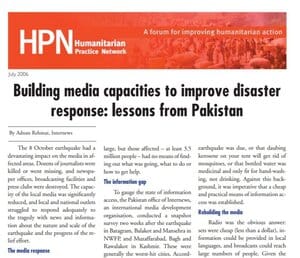Within a week of the October 8 earthquake Internews launched the Pakistan Emergency Information Project to rebuild media capacities affected by the disaster in Kashmir and NWFP. This work primarily included developing the emergency broadcast sector, building radio production facilities, providing small equipment grants to emergency FM stations, training journalists in humanitarian reporting, and producing and distributing a daily one-hour news and information program on humanitarian issues called ‘Jazba-e-Tameer’ (‘The Spirit of Recovery’). The aim of the program was to provide accurate and impartial information to help people make decisions about their future. Such information was vital in countering many of the rumors and myths that were circulating throughout Pakistan.
Internews’ Pakistan Emergency Information Project also distributed about 6,500 radio sets in Kashmir and 3,500 in the North West Frontier Province in support to UNHCR. This project was funded by the Swiss Agency for Development and Cooperation (SDC) and the Department for International Development (DFID).
“The Internews Pakistan Emergency Information Project shows how an often-neglected aspect of post-disaster relief – the provision of reliable information for survival and recovery – can be achieved in little time (100 days), and with little money.”
From the report: Building Media Capacities to Improve Disaster Response: Lessons from Pakistan
FINAL REPORT

In June 2012, Infoasaid produced this media landscape guide about Pakistan.
Aug 9, 2018

Article about the lessons learned from the 2005 earthquake in Pakistan and how to improve the humanitarian media response.
Jul 9, 2006